-
 Bitcoin
Bitcoin $115000
0.12% -
 Ethereum
Ethereum $3701
4.50% -
 XRP
XRP $3.081
2.99% -
 Tether USDt
Tether USDt $0.0000
-0.01% -
 BNB
BNB $767.9
1.45% -
 Solana
Solana $169.5
3.13% -
 USDC
USDC $0.9999
0.01% -
 Dogecoin
Dogecoin $0.2106
4.30% -
 TRON
TRON $0.3334
1.62% -
 Cardano
Cardano $0.7564
2.54% -
 Stellar
Stellar $0.4165
0.76% -
 Hyperliquid
Hyperliquid $38.75
0.25% -
 Sui
Sui $3.593
3.00% -
 Chainlink
Chainlink $17.08
3.59% -
 Bitcoin Cash
Bitcoin Cash $573.6
4.35% -
 Hedera
Hedera $0.2508
-0.84% -
 Avalanche
Avalanche $23.07
6.46% -
 Ethena USDe
Ethena USDe $1.001
-0.02% -
 Litecoin
Litecoin $120.8
8.17% -
 UNUS SED LEO
UNUS SED LEO $8.943
-0.32% -
 Toncoin
Toncoin $3.400
-5.60% -
 Shiba Inu
Shiba Inu $0.00001255
1.54% -
 Uniswap
Uniswap $9.908
6.32% -
 Polkadot
Polkadot $3.718
2.10% -
 Monero
Monero $303.0
-0.74% -
 Dai
Dai $0.9999
-0.02% -
 Bitget Token
Bitget Token $4.392
0.91% -
 Cronos
Cronos $0.1403
6.31% -
 Pepe
Pepe $0.00001076
1.13% -
 Aave
Aave $267.2
1.80%
What are the Bybit NFT marketplace fees?
Bybit charges a 1% transaction fee on sellers, plus creator royalties and gas fees, with transparent breakdowns provided for every NFT trade on its platform.
Aug 05, 2025 at 06:07 am
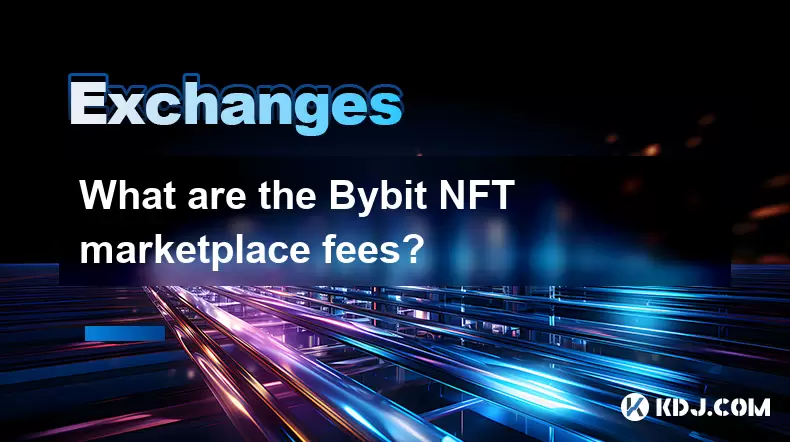
Understanding Bybit NFT Marketplace Fee Structure
The Bybit NFT marketplace operates with a clear and transparent fee model designed to support both buyers and sellers in the digital collectibles space. When engaging in NFT transactions on this platform, users encounter several types of fees, each serving a distinct purpose. The primary components include transaction fees, royalty fees, and gas fees, all of which are essential to understand before listing or purchasing NFTs. Bybit maintains a competitive edge by keeping its platform commission relatively low compared to other major NFT marketplaces.
One of the most significant aspects is the 1% transaction fee applied to every successful NFT sale. This fee is deducted from the seller’s proceeds after the sale is finalized. For example, if a user sells an NFT for 10 ETH, Bybit will retain 0.1 ETH as its service charge. This fee is automatically calculated and withdrawn from the final payout, requiring no manual intervention from the user. It applies uniformly across all collections and categories unless special promotions or fee waivers are in effect.
Creator Royalties and Secondary Sales
In addition to the platform fee, creator royalties play a vital role in the Bybit NFT ecosystem. These are optional percentages set by the original NFT creators during minting and are paid to them each time their NFT is resold on the secondary market. Bybit supports royalty enforcement, meaning that if a collection specifies a 5% royalty, every subsequent sale will automatically transfer 5% of the sale price to the creator’s wallet.
Royalty fees are collected separately from the 1% Bybit commission. This means a seller pays both the platform fee and the royalty fee, which are processed simultaneously during settlement. For instance, selling an NFT for 8 ETH with a 5% royalty results in 0.4 ETH going to the creator and 0.08 ETH to Bybit. The remaining 7.52 ETH is what the seller receives. Bybit ensures these payments are executed through smart contract automation, minimizing the risk of non-compliance.
It’s important to note that royalty rates are determined at the time of NFT creation and cannot be altered by the marketplace or subsequent owners. Buyers should verify the royalty percentage before purchasing, as it affects the long-term cost of ownership and resale value.
Gas Fees and Blockchain Network Costs
While Bybit absorbs its own platform fees in ETH or other supported currencies, gas fees are the responsibility of the user and are paid directly to the underlying blockchain network. These fees fluctuate based on network congestion and are required to execute transactions such as minting, transferring, or listing NFTs. Bybit currently supports NFTs on Ethereum, BNB Chain, and Arbitrum, each with different gas cost structures.
To estimate gas fees, users should monitor real-time network conditions using tools like Etherscan Gas Tracker or BNB Chain Gas Price Monitor. For example, during peak hours on Ethereum, gas prices may exceed 50 gwei, significantly increasing transaction costs. In contrast, BNB Chain typically offers lower and more stable gas fees, making it a cost-effective option for frequent traders.
When listing an NFT, the seller incurs a gas fee for the initial approval transaction and another when the sale is confirmed. Buyers pay gas when they finalize a purchase. These fees are non-refundable, even if a transaction fails, so ensuring sufficient wallet balance is crucial.
How to View and Calculate Total Fees
Bybit provides a fee breakdown interface on each NFT listing page, allowing users to preview all applicable charges before confirming a transaction. To access this information:
- Navigate to the NFT detail page
- Click on the "Fees" or "Price Breakdown" section
- Review the 1% Bybit fee, creator royalty, and estimated gas cost
- Confirm the net amount the seller will receive or the total cost to the buyer
For sellers preparing to list an NFT, the platform displays a pre-listing fee estimator during the listing process. This tool calculates the expected deductions based on the asking price. Users can adjust their price to account for fees and ensure desired profit margins. No hidden charges are applied beyond what is shown in this estimator.
It is recommended to use Bybit’s web interface instead of third-party dApps to ensure accurate fee calculations, as external tools may not reflect the latest marketplace rules or temporary fee adjustments.
Fee Exemptions and Promotional Offers
Bybit occasionally runs promotional campaigns that temporarily reduce or eliminate platform fees. These are typically announced through the official Bybit blog, social media channels, or in-app notifications. Examples include:
- Zero-fee listing periods during new collection launches
- Waived transaction fees for users holding specific tokens or VIP levels
- Discounted gas fees through partnerships with layer-2 networks
To qualify for such offers, users must meet specific criteria, such as completing KYC, maintaining a minimum trading volume, or holding Bybit Tokens (BYB). Participation usually requires opting in via the promotions dashboard.
Even during fee waivers, creator royalties and gas fees still apply. Users should read the full terms of any promotion to avoid misunderstandings about which fees are covered.
Frequently Asked Questions
Does Bybit charge a fee for unsuccessful NFT bids?
No, Bybit does not charge any platform fee if a bid is not accepted or if an auction ends without a sale. However, any gas fees used to place the bid are paid to the blockchain network and are non-refundable.
Can I change the royalty percentage on my NFT after minting?
No, royalty percentages are permanently set at the time of minting and enforced by the smart contract. Once an NFT is created, the royalty cannot be modified by the creator or the marketplace.
Are there fees for canceling an NFT listing on Bybit?
Bybit does not charge a fee for canceling a listing. However, the initial gas fee paid to approve the NFT for trading remains non-refundable, as it was used to authorize the smart contract.
Do buyers pay the 1% Bybit fee?
No, the 1% transaction fee is deducted from the seller’s payout. Buyers pay the full listed price plus any applicable gas fees, but they do not directly pay the platform commission.
Disclaimer:info@kdj.com
The information provided is not trading advice. kdj.com does not assume any responsibility for any investments made based on the information provided in this article. Cryptocurrencies are highly volatile and it is highly recommended that you invest with caution after thorough research!
If you believe that the content used on this website infringes your copyright, please contact us immediately (info@kdj.com) and we will delete it promptly.
- Velo Universe, DEX, and DeFi Security: Navigating the Future of Decentralized Trading
- 2025-08-05 09:25:13
- Bitget Wallet Revolutionizes Solana with Gas-Free Transactions: A New Era for DeFi
- 2025-08-05 09:25:13
- Ozak AI, Crypto Boom, and ROI Potential: Is This the Next Big Thing?
- 2025-08-05 09:25:24
- Solana's ETF Hopes & the All-Time High Chase: Is SOL Set to Soar?
- 2025-08-05 09:25:24
- Coinbase's Brian Armstrong and the Art of Focused Work: A Deep Dive
- 2025-08-05 09:25:30
- Uniswap Price Prediction: Bullish Reversal on the Horizon?
- 2025-08-05 09:25:30
Related knowledge
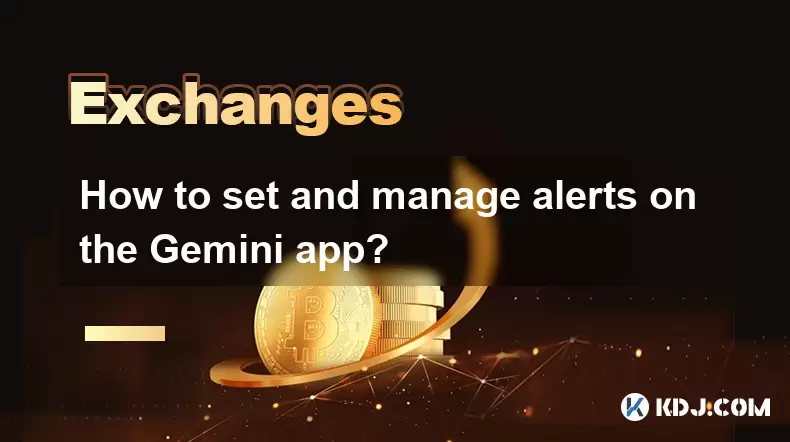
How to set and manage alerts on the Gemini app?
Aug 03,2025 at 11:00am
Understanding the Gemini App Alert SystemThe Gemini app offers users a powerful way to stay informed about their cryptocurrency holdings, price moveme...
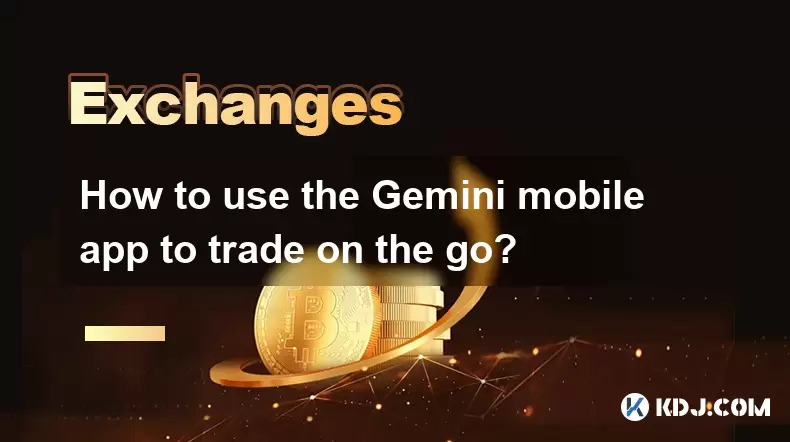
How to use the Gemini mobile app to trade on the go?
Aug 04,2025 at 09:14am
Setting Up the Gemini Mobile AppTo begin trading on the go using the Gemini mobile app, the first step is installing the application on your smartphon...
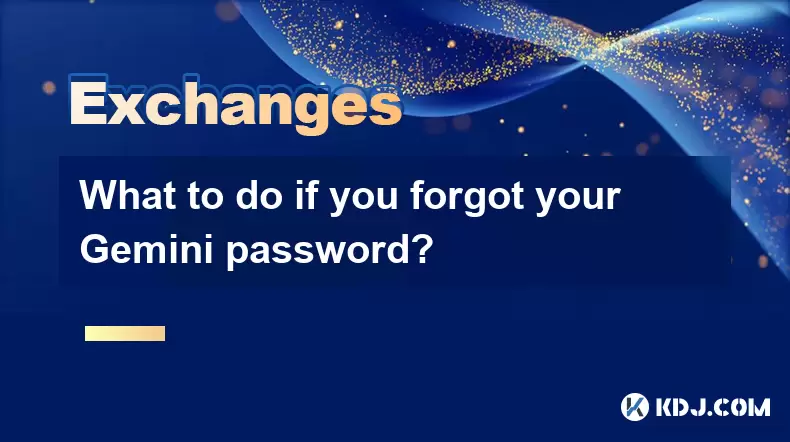
What to do if you forgot your Gemini password?
Aug 04,2025 at 03:42am
Understanding the Role of Passwords in Gemini AccountsWhen using Gemini, a regulated cryptocurrency exchange platform, your password serves as one of ...
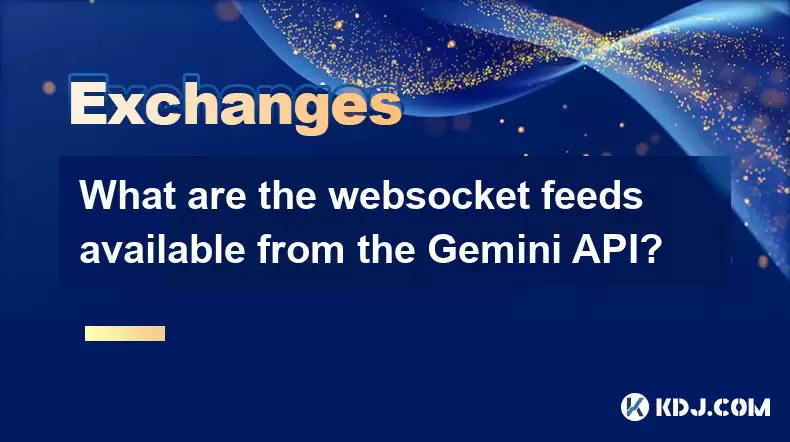
What are the websocket feeds available from the Gemini API?
Aug 03,2025 at 07:43pm
Overview of Gemini WebSocket FeedsThe Gemini API provides real-time market data through its WebSocket feeds, enabling developers and traders to receiv...
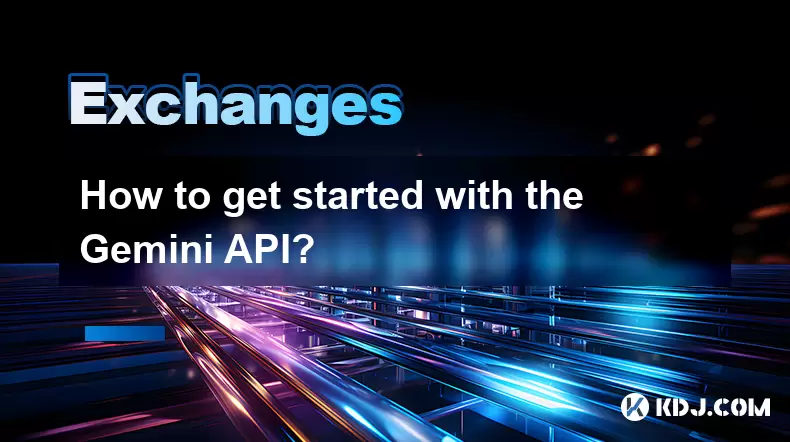
How to get started with the Gemini API?
Aug 05,2025 at 12:35pm
Understanding the Gemini API and Its PurposeThe Gemini API is a powerful interface provided by the cryptocurrency exchange Gemini, enabling developers...
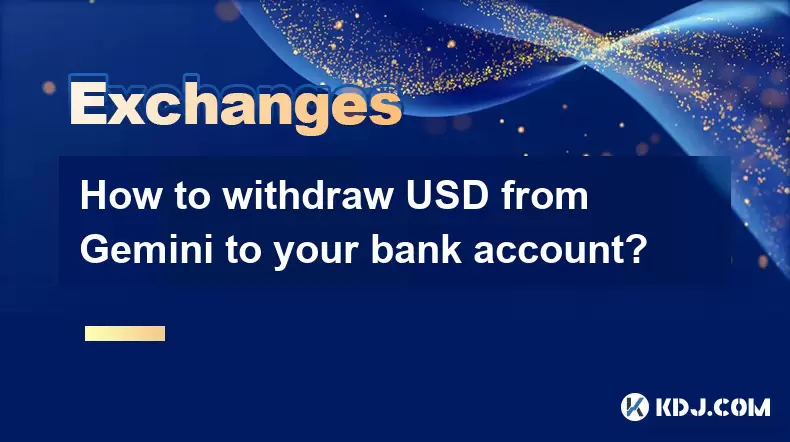
How to withdraw USD from Gemini to your bank account?
Aug 04,2025 at 11:01am
Understanding Gemini and USD WithdrawalsGemini is a regulated cryptocurrency exchange platform that allows users to buy, sell, trade, and store digita...

How to set and manage alerts on the Gemini app?
Aug 03,2025 at 11:00am
Understanding the Gemini App Alert SystemThe Gemini app offers users a powerful way to stay informed about their cryptocurrency holdings, price moveme...

How to use the Gemini mobile app to trade on the go?
Aug 04,2025 at 09:14am
Setting Up the Gemini Mobile AppTo begin trading on the go using the Gemini mobile app, the first step is installing the application on your smartphon...

What to do if you forgot your Gemini password?
Aug 04,2025 at 03:42am
Understanding the Role of Passwords in Gemini AccountsWhen using Gemini, a regulated cryptocurrency exchange platform, your password serves as one of ...

What are the websocket feeds available from the Gemini API?
Aug 03,2025 at 07:43pm
Overview of Gemini WebSocket FeedsThe Gemini API provides real-time market data through its WebSocket feeds, enabling developers and traders to receiv...

How to get started with the Gemini API?
Aug 05,2025 at 12:35pm
Understanding the Gemini API and Its PurposeThe Gemini API is a powerful interface provided by the cryptocurrency exchange Gemini, enabling developers...

How to withdraw USD from Gemini to your bank account?
Aug 04,2025 at 11:01am
Understanding Gemini and USD WithdrawalsGemini is a regulated cryptocurrency exchange platform that allows users to buy, sell, trade, and store digita...
See all articles

























































































